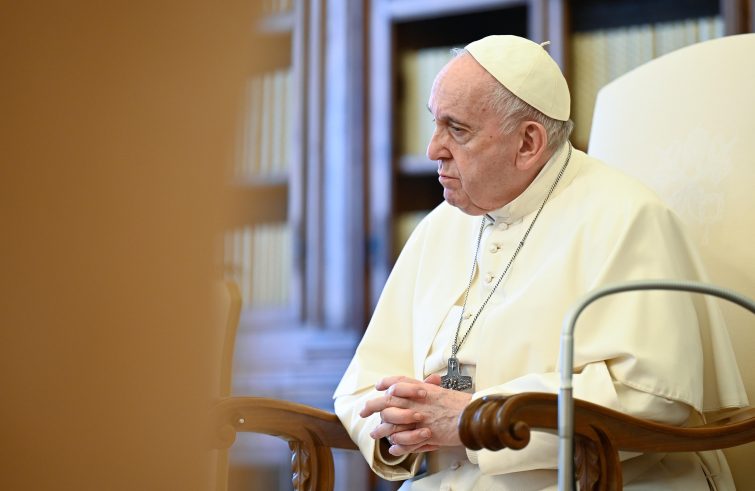
“The Catholic faithful are called to work together, each in the midst of his or her own community, to make the Church become ever more inclusive” and for the “colourful future” we all deserve. The Pope’s appeal is contained in his Message for the 107th World Day of Migrants and Refugees that will be celebrated on September 26 under the theme, “Towards and ever wider ‘we’”. “All the baptized, wherever they find themselves, are by right members of both their local ecclesial community and the one Church, dwellers in one home and part of one family”, Francis writes in the Message.
“In our day, the Church is called to go out into the streets of every existential periphery in order to heal wounds and to seek out the straying, without prejudice or fear, without proselytising, but ready to widen her tent to embrace everyone”, the course of action outlined in the Message: “in those existential peripheries, we find many migrants and refugees, displaced persons and victims of trafficking, to whom the Lord wants his love to be manifested and his salvation preached.”
From this perspective, “the current influx of migrants can be seen as a new ‘frontier’ for mission, a privileged opportunity to proclaim Jesus Christ and the Gospel message at home, and to bear concrete witness to the Christian faith in a spirit of charity and profound esteem for other religious communities. The encounter with migrants and refugees of other denominations and religions represents a fertile ground for the growth of open and enriching ecumenical and interreligious dialogue.”
“In moments of great crisis, as is the case with the current pandemic, our “we”, both in the wider world and within the Church, is crumbling and cracking due to myopic and aggressive forms of nationalism”,
the cry of alarm outlined in first paragraphs of the Message: “The present time, however, shows that this ‘we’ willed by God is broken and fragmented, wounded and disfigured. And the highest price is being paid by those who most easily become viewed as others: foreigners, migrants, the marginalized, those living on the existential peripheries.” The truth however, Francis remarks, is that
“we are all in the same boat and called to work together so that there will be no more walls that separate us, no longer others, but only a single ‘we’, encompassing all of humanity.”
Hence the “twofold appeal to advance together towards an ever wider ‘we’”, addressed “first to the Catholic faithful and then all the men and women of our world.” For the members of the Catholic Church, the Pope writes, “this appeal entails a commitment to becoming ever more faithful to our being ‘Catholic’” and “embrace everyone, to build communion in diversity, to unify differences without imposing a depersonalized uniformity.”
“Our societies will have a ‘colourful’ future,
enriched by diversity and by cultural exchanges”, Francis observes: “Consequently, we must even now learn to live together in harmony and peace.” “I also make this appeal to journey together towards an ever wider ‘we’ to all men and women, for the sake of renewing the human family, building together a future of justice and peace, and ensuring that no one is left behind”, reads the Message. The image chosen is that of the day of the Church’s “baptism” at Pentecost: “This is the ideal of the new Jerusalem – Francis writes – where all peoples are united in peace and harmony, celebrating the goodness of God and the wonders of creation.” His Holiness underlines that “to achieve this ideal, however, we must make every effort to break down the walls that separate us and, in acknowledging our profound interconnection, build bridges that foster a culture of encounter.” There ensues that “today’s migration movements offer an opportunity for us to overcome our fears and let ourselves be enriched by the diversity of each person’s gifts. Then, if we so desire, we can transform borders into privileged places of encounter, where the miracle of an ever wider ‘we’ can come about.”
“To preserve and make his creation even more beautiful”,
is the Pope’s appeal, calling upon the faithful to “work towards a more sustainable, balanced and inclusive development. A commitment that makes no distinction between natives and foreigners”, and no one should be excluded from the benefits of that commitment. “We are called to dream together”, concludes the Pope again quoting from the prophecy of Joel: “fearlessly, as a single human family, as companions on the same journey, as sons and daughters of the same earth that is our common home, sisters and brothers all.”











